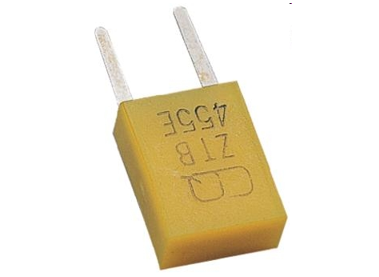resonator
A resonator is a frequency-determining circuit whose frequency is determined by the natural frequency. Such a resonator can be a series or parallel connection of a capacitance and an inductance, i.e. a resonant circuit whose natural frequency is the resonant frequency. The resonant frequency is the frequency at which the reactances of the capacitance and inductance are equal and cancel, and thus the total reactance becomes zero.
An important characteristic value of resonators is the bandwidth, which depends on the damping or the quality of the oscillating circuit components. The latter is defined by the energy loss per oscillation caused by the loss resistance.
Resonators are used in frequency-determining circuits, primarily in RF technology but also in acoustics. They are designed for a specific frequency and can be made of discrete components, ferroelectric material such as the ceramic resonator, quartz-based such as the quartz resonator, silicon-based such as the FBAR resonator, microsystem-based such as the MEMS resonator or dielectric-based such as the dielectric resonator oscillator( DRO).
In contrast to the mentioned resonators based on resonance, there are the optical resonators. In these optical components, the resonator principle is determined by the arrangement of the optical elements, such as the laser mirror, and by the mechanical design.

